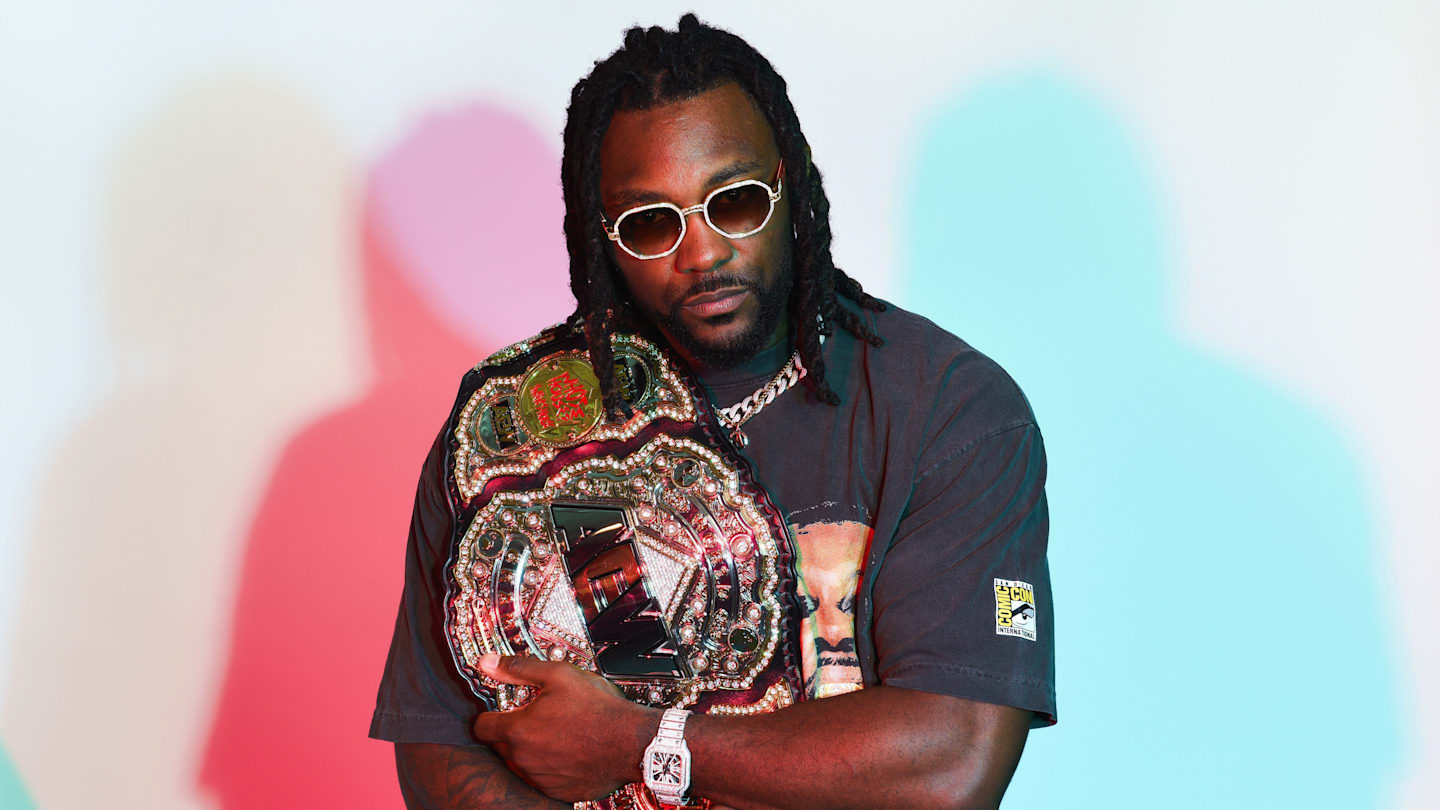
As someone who has grown up with professional wrestling as a beloved pastime, I can’t help but feel a mix of emotions when reading about the experiences of Black performers like EJ Nduka and Swerve Strickland. On one hand, it’s heartening to see the strides that have been made in representation and the elevation of Black champions within the industry. On the other hand, it’s disheartening to know that the same issues of opportunity and fairness that have plagued society continue to linger within the wrestling world as well.
Professional wrestling often reflects the broader societal contexts in which it operates. For some, it serves as an escape, but its stories and characters frequently resonate with people based on their identities. It’s crucial to acknowledge and appreciate the universal aspects of wrestling because its fanbase spans a wide range of identities. This is why it’s essential to consider criticisms regarding representation within the wrestling industry. For instance, EJ Nduka shared powerful insights about his time as a WWE performer, and these perspectives should not be disregarded.
To fully understand Nduka’s opinions shared on social media, it’s crucial to first rewind and clarify the origin of the dispute. His comments stem from Swerve Strickland, a previous WWE performer who is now the AEW World Champion after re-signing with All Elite Wrestling. There were rumors about how WWE reacted to his new contract. The Wrestling Observer suggested that WWE executives deemed such contracts “unfavorable for the sport,” indicating that those receiving these contracts were overpaid relative to their actual worth. According to Fightful Select on August 30, Swerve’s contract falls within the same range as top AEW wrestlers like Okada and Mercedes Mone, whose recent deals are comparable to what many long-time WWE veterans made in their last contracts, although AEW’s have significantly fewer dates that actually apply.
The initial discussion connects with Nduka’s remarks, as he initiated his Twitter discourse by referencing a segment of a video featuring Swerve discussing the progression of Black quarterbacks in the NFL, and linking this development to the rise of the Black titleholder in professional wrestling.
Approximately a month ago, an article was published about me receiving my latest contract, one of the highest in wrestling at present, and I’m earning above industry standard. It seems as though we’re having the same discussions that were relevant fifty years ago, Stickland mentioned during an interview on The Breakfast Club. AEW is wonderful for this reason, and I’m proud to be a part of it. We’re causing a stir again, just like they did half a century ago, but we’re doing it now in professional wrestling.
Nduka’s post resumes, emphasizing the chances he’s been granted within AEW and Ring of Honor, but explicitly pointing out that “the other side” hasn’t offered us those opportunities. His post delves into his joining WWE and being let go by the company during the COVID-19 pandemic.
“They took the support from my family and me, along with many other wrestlers, because Vince McMahon wanted to use that money for hush money instead. As far as I’m concerned, you all might as well eat grass.
The hush money comment speaks to the WWE board investigation of McMahon that found he paid hush money to past employees, and the eventual unveiling of the Janel Grant lawsuit against McMahon, John Laurinaitis, and WWE in January 2024.
Nduka also praised AEW and Tony Khan for his experience while being signed with the company.
Nduka shared: “I prefer working under a supervisor who is genuinely enthusiastic about your progress and growth, rather than one who disregards or discourages you when you try to stand out.
What makes this relevant is that it sheds light on the perception of a glass ceiling persisting within professional wrestling. While there have been Black champions like Bianca Belair, Nia Jax, Kofi Kingston, Swerve Strickland, Bobby Lashley, and others, there are still many who aspire to reach the top but haven’t gotten their chance yet. The list of talented individuals who should have had a shot at championship status but were overlooked is growing. Let’s bring up Shelton Benjamin as an example of this issue.
As a gamer, I’ve noticed that discussions about inclusivity often lead to the same patterns. On one side, there’s the topic at hand. But on the other, there’s the recurring narrative that pops up whenever these matters are raised. Instead of addressing the concerns directly, responses frequently involve excuses, confusing arguments, suggestions that performers aren’t “ready,” or calls to “just wait.
If some claim that professional wrestling is “blind to color,” why does pointing out basic observations often lead to such strong backlash? For instance, when it’s noted that the WWE Bad Blood event will be the third consecutive WWE PPV without any Black wrestler on the card, this statement is frequently met with a wave of disapproval and confusion that can still seem surprising.
Professional wrestling and sports entertainment can be likened to diverse variety programs. It’s ideal for these events to reflect as many different groups within their audience as possible. However, there’s persistent resistance when Black wrestlers and fans voice their experiences in this sphere. This indicates that significant progress is still required. Much like the broader society, which wrestling often reflects.
Read More
- Clash Royale Best Boss Bandit Champion decks
- Vampire’s Fall 2 redeem codes and how to use them (June 2025)
- Mobile Legends January 2026 Leaks: Upcoming new skins, heroes, events and more
- M7 Pass Event Guide: All you need to know
- Clash Royale Furnace Evolution best decks guide
- Clash Royale Season 79 “Fire and Ice” January 2026 Update and Balance Changes
- World Eternal Online promo codes and how to use them (September 2025)
- Clash of Clans January 2026: List of Weekly Events, Challenges, and Rewards
- Best Arena 9 Decks in Clast Royale
- Best Hero Card Decks in Clash Royale
2024-09-28 23:45